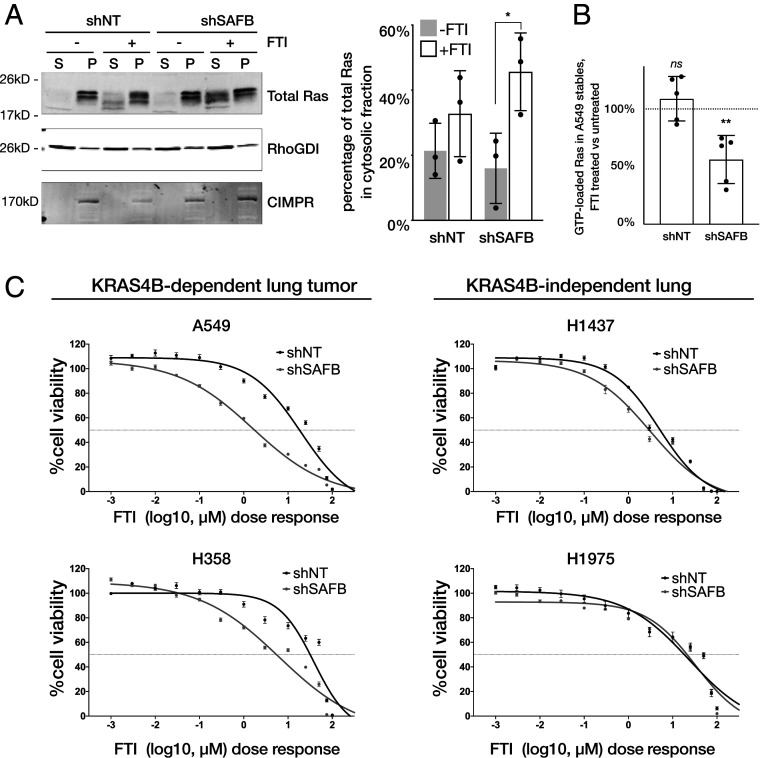Fig. 5.
Loss of SAFB diminishes membrane association and GTP loading of KRAS4B and sensitizes KRAS4B-dependent lung tumor cells to FTI treatment. KRAS4B-dependent (A549, H358) and KRAS4B-independent (H1437, H1975) lung tumor cells were stably transfected with a nontargeting shRNA or one targeting SAFB and plated untreated or treated with FTI (L-744,832). (A) A549 cells were disrupted by nitrogen cavitation, separated into S and P fractions by ultracentrifugation, and analyzed by immunoblots for the indicated proteins, including cytosolic (RhoGDI) and membrane (cation-independent manose-6-phosphate receptor; CIMPR) markers (Left). Bands were quantified by Li-Cor Odyssey and percent of total RAS in the cytosol is plotted to the Right; n = 3, *P < 0.05. (B) GTP loading of RAS in FTI-treated (25 µM L-744,832) A549 cells normalized to that measured in untreated cells with and without silencing SAFB by shRNA. **P < 0.01, n = 5. (C) The viability (normalized to untreated cells) of cells with and without stably silencing SAFB by shRNA was determined by 3-(4,5-dimethylthiazol-2-yl)-5-(3-carboxymethoxyphenyl)-2-(4-sulfophenyl)-2H-tetrazolium (MTS) assay after 6 d of treatment with indicated concentrations of FTI (L-744,832), n = 3. ns, not significant.

